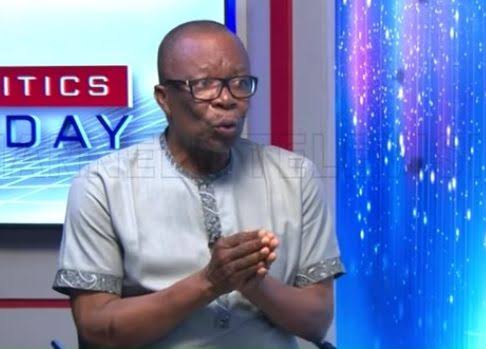Important parties involved in education have emphasised how urgently national and local governments must show their commitment to and focus on promoting meaningful development in the education sector by 2024.
The Academic Staff Union of Universities (ASUU) National President, Prof. Emmanuel Osodeke, stated that the industry saw no significant changes in 2023 as he looked back on the previous year and ahead to the new one.
He emphasised the need for strong political will to revitalise the industry and move the nation towards faster growth and development.
To be very honest, not much changed in the industry over the previous 12 months. Our expectations are not met, particularly with regard to the fiscal allocation. Osodeke said, “The amount allotted for education is still static and insufficient for meaningful progress.
He listed a number of difficulties, such as unfavourable learning environments, inadequate facilities, a dearth of teaching resources, low pay for industry workers, and financial limitations.
In all honesty, I won’t claim that anything noteworthy changed in the sector as a whole during the year under review. It is essentially far from what we desire, particularly in terms of how the budget is allocated.
“It’s not any different from what we had eight years ago. It’s not improving at all. Take a peek at the amount allotted to the industry this year. Does it demonstrate that we genuinely desire change?
“The suggested budget of 8.8% still fell short of the 26% that the United Nations Educational, Scientific, and Cultural Organisation had recommended for the area.
“Aside from the budget, we are all aware of the subpar infrastructure and educational environment, the lack of instructional resources in general or their scarcity, the low pay for industry employees, and of course the much discussed funding.
When passed, these budgets are frequently hardly ever carried out correctly. In an effort to propose ideas for a better Nigeria, I hope we examine the sector comprehensively and identify the areas of concern, stated the ASUU head.
Osodeke emphasised how critical it is that the government follow through on its commitments, especially when it comes to funding granted for vital educational initiatives that are necessary to produce the intended results.
He highlighted the significance of these promises by applauding a number of state governments, including those of Enugu, Abia, and Oyo, for enacting noteworthy budgets set aside for education. Osodeke promoted giving education top priority as a crucial pillar of national growth.
“I want to emphasise that I am pleased with the recent actions taken by several state governments to allocate funds for the industry in the upcoming year.
It indicates that we are progressively realising how important education is to the development of a country.
States like Enugu, for example, have approved a 33% state budget for education, and I believe this to be significant. I would want to say that if this is put into practice, Abia and Oyo will both pass with 20 and 21 percent, respectively.
“We hope the federal government takes a signal from these three state governments and they should be commended if they carry out these budgets as planned.
As I previously stated, we as a people, and not as outsiders, have what it takes to address our problems on our own.
Osodeke declared, “We must look inward and stop running to the Western world for one favour or the other. Education should be our top priority in doing so.”
Mr. Akinteye Afeez, Senate President of the National Association of Nigerian Students (NANS), voiced his displeasure with the status of education in 2023. Afeez anticipates that in 2024, the government would fulfil its commitments to raise school funding, provide CNG buses, and improve educational quality in order to end the ASUU strikes.
“There has been no improvement in education during the past few years. Overall, the sector has not improved noticeably; the results are the same as they were in prior years.
“All we can hope is that the government’s policies, which were promised in 2024, will finally get underway.” Examples include the federal government’s promised CNG buses, bursaries, and budget increases for education.
“We hope that the ASUU strikes are truly over, and we look forward to brighter years to come. However, in our opinion, the year under review’s performance in terms of education was lacking,” Afeez said.
Prof. Chinwe Obaji, a former minister of education, advocated for increased oversight and monitoring of government- and private-owned educational institutions in order to guarantee high-quality instruction. She emphasised the need to stop exploitative behaviours, pointing out the outrageous costs some private secondary schools charge to register for public exams and the necessity of strict discipline among school officials.
“I believe that the government needs to intensify its efforts to shine a spotlight on education, particularly in privately held secondary schools where some educators and administrators defraud parents of their hard-earned money under the pretence of completing required coursework.
“Some parents have been complaining about these private schools’ ridiculous expectations on multiple occasions.
The most concerning of them is the exorbitant costs that these schools frequently charge these parents to register for public exams like the West African Senior School Certificate Examination (WASSCE) by WAEC and the Senior School Certificate Examination (NEC).
“These fees are typically significantly more than the usual rates established by the two examining bodies.
“In the same spirit, such light ought to be directed towards certain public schools as well, as it has been found that some teachers leave their positions to take up small-time jobs or other pursuits.
Administrators at schools must also appear to possess this enthusiasm, commitment, and discipline—not only the government.
The former minister declared, “To take the sector to the much-desired height, all hands must be on deck.”
All of the parties involved acknowledged the vital role that education plays and demanded that they work together to raise the industry to the required level.

